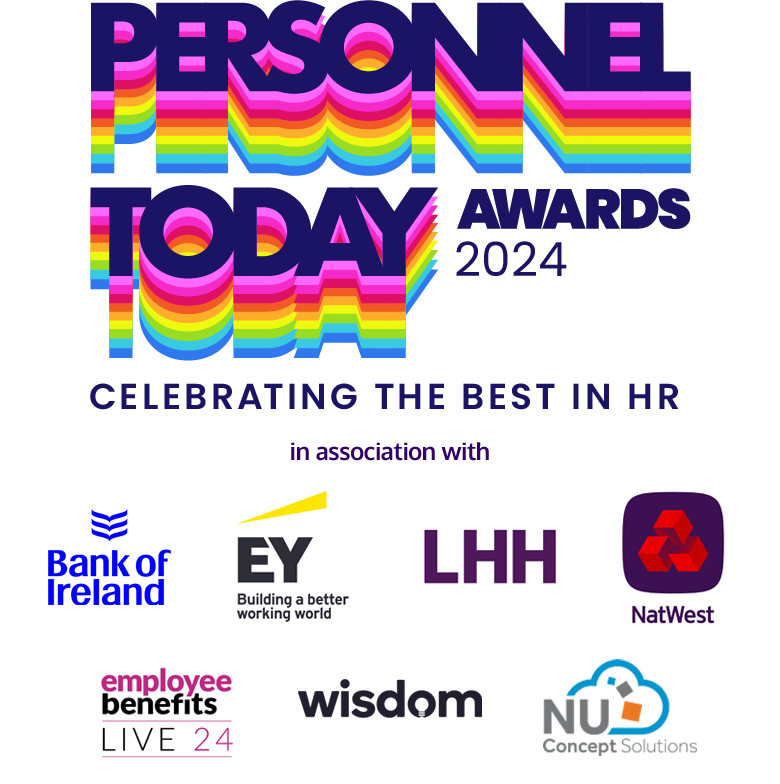Accounting firm Grant Thornton was named the top large employer in Personnel Today’s Learning and Development Award in 2024, with judges highlighting its innovative coaching programme and peer-to-peer learning opportunities.
WINNER
Grant Thornton UK
Grant Thornton UK LLP is an accountancy firm with 26 locations and 5,500 employees, providing services like auditing, tax, corporate finance, and consulting. The firm recruits 300-400 graduates and school leavers annually and supports them in obtaining professional qualifications. Its diverse workforce includes 48% identifying as Asian, Black, or mixed race, and 4% as LGBTQIA+, with equal numbers of men and women.
Retaining talent is vital for Grant Thornton, as many employees, especially graduates, are headhunted. Its current attrition rate is 17.9%. To address talent retention and promote diversity, the firm aims to increase the number of women in leadership by 39% and ethnic minorities by 36% by 2025. Wellbeing is also important, as employees often face demanding workloads.
To meet these goals, Grant Thornton developed an EMCC-accredited coaching programme. This internal initiative, available to all employees, equips leaders with coaching skills to support career progression and diversity. Since its launch, 87 partners and directors have become job+ coaches, and 265 employees were coached in 2022 and 2023. The programme is cost-effective, saving the firm 50% compared to hiring external coaches.
Results show that coaching improves retention, promotion, and performance. Coached employees have a lower attrition rate of 12.8% and are 57% more likely to be promoted than those not coached, with diverse talent benefitting the most.
RUNNERS-UP
AstraZeneca
Personnel Today Awards
All our 2024 winners revealed
View the 2024 photo gallery
The Personnel Today Awards 2025 open for entries around Easter
Sign up to keep updated
AstraZeneca has invested £280m in its advanced medicine manufacturing facility to address growing demand and ensure compliance with regulations. Over 800 employees work in this highly regulated environment, which requires complex training due to the strict hygiene standards needed for manufacturing. To improve and sustain learning, AstraZeneca developed a new learning and development programme, including a state-of-the-art Learning Academy. This academy incorporates innovative technologies such as augmented and virtual reality to train staff in a simulated environment.
Previously, induction training was lengthy, inconsistent, and disruptive to production. The new programme has streamlined this process, reducing training times and improving the consistency and effectiveness of learning. Now, employees complete a six-month induction programme that includes virtual reality simulations, assessments, and ongoing learning through an on-demand app. This approach has improved engagement, with a 22% increase in learner competence and reduced the speed to competence in some tasks to just two weeks.
AstraZeneca’s Learning Academy is now recognised for its success, being used for further training, upskilling, and development across multiple sites. It has become a blueprint for delivering effective training while minimising disruption to production. The company has also seen a 17% reduction in deviations in 2024, demonstrating the programme’s success in improving regulatory compliance and quality standards.
Biffa
Biffa employs over 11,000 people across the UK and is a key player in the waste management industry. As the sector evolves with new technology and a focus on sustainability, Biffa is working to build a more diverse and inclusive workforce. The company’s people strategy aims to make employees feel welcomed and supported, while its business model centres on four key areas: reduce, recycle, recover, and collect.
Biffa identified that inconsistent experiences for employees were due to varying levels of line manager skills. Many managers, often promoted for their expertise rather than management ability, lacked clarity on expectations. To address this, Biffa launched the LEAD (Lead, Engage and Develop) programme in February 2023. This training programme, endorsed by the Chartered Institute of Personnel and Development (CIPD), helps managers across the company develop skills in managing people, policies, and behaviours.
Delivered through seven online sessions, LEAD aims to create resilient teams and ensure a consistent employee experience. So far, 78% of managers have engaged with the programme, with 80% recommending it. Managers are now more confident in handling policies and supporting their teams, reducing the need for HR involvement. Positive improvements have also been seen in employee health, safety, wellbeing, and diversity. LEAD is helping Biffa achieve its goal of a more engaged and effective workforce.
Bright Horizons
Bright Horizons identified a gap in leadership training in 2022, which it addressed through a four-year strategic plan. Although nursery staff had strong experience and qualifications, they lacked formal leadership skills needed for roles such as strategic thinking, team management, and conflict resolution. To bridge this gap, Bright Horizons introduced three new development programmes, each tailored to specific roles within the organisation.
The Future Leaders Programme, launched in 2022, targeted staff in Room Leader and Third-in-Charge roles, helping them enhance their leadership, management, and coaching skills. The Deputy Manager Programme was also introduced to support deputies in gaining confidence and refining their leadership abilities. Finally, the Leadership Talent Programme focused on identifying employees with high leadership potential and preparing them for future strategic roles.
These programmes have led to impressive outcomes, including an 83% participation rate in the Future Leaders Programme and a 75% reduction in open manager vacancies. Staff turnover has dropped by 10%, and employee engagement has increased, with over 80% of staff rating Bright Horizons as a “great” place to work.
Additionally, the organisation’s commitment to development was recognised with awards, including a place on the UK’s Best Workplaces for Development list and the Culture Pioneer Award in 2022, affirming its focus on nurturing talent and maintaining high-quality childcare.
Nationwide Building Society
In 2023, Nationwide Building Society launched a strategy aimed at transforming into a ‘modern mutual,’ which required cultural changes. To support this shift, it identified the need for stronger people manager capabilities. A new People Manager Programme was developed for 2,400 managers, focusing on six key capabilities: setting direction, time planning, knowing employees, enabling performance, leading teams, and assessing risk. The programme aims to create consistency in people management, offering digital learning combined with in-person workshops.
The programme begins with a 180-degree feedback survey and a virtual kick-off session. Managers then engage in blended learning, with support from department champions, their managers, and leadership facilitators. Strong stakeholder engagement, including input from union and diversity specialists, helped ensure the programme’s success. Cohorts of 20 managers from different roles and experience levels work together, benefiting from peer learning and networking opportunities.
Early results indicate positive outcomes: 97% of participants feel better equipped for their roles, 95% have applied their learning, and 97% have gained from peer interaction. Feedback highlights the programme’s value, and managers involved show a potential 10% increase in engagement scores. Given the programme’s success, Nationwide is seeking assured status from the Institute for Leadership and Management and plans to expand participation.
NatWest Group
NatWest Group aimed to change its performance management system by creating a workplace focused on high performance through meaningful coaching conversations. It wanted to move away from its traditional ratings-based system and instead drive performance through its values. To achieve this, it worked with employees and external experts to co-create a new approach called Beyond. The programme aimed to inspire and empower employees, rather than manage their performance through administrative processes.
The change wasn’t about HR unleashing a new programme upon the bank. HR instead needed people to tell it what should change, right from the executive team to colleagues in branches, to co-create a better approach.
Through research involving 6,000 employees, NatWest found that the legacy system consumed over a million hours annually without improving performance. Beyond introduced four key chapters, each focusing on different aspects of performance, with a strong emphasis on giving and receiving feedback. The programme uses various learning methods, including digital modules, workshops, and live events featuring Team GB athletes, to inspire employees and build their skills.
The results have been positive, with 96% of employees completing the digital learning modules and high engagement in workshops. The new approach has significantly reduced the time spent on performance management, from 660,000 hours to 13,000 hours annually. Employee feedback shows increased confidence in setting ambitious goals, and the programme has also improved key performance indicators, such as goal-setting experiences and feedback processes.
NHS England in partnership with escalla
The NHS faced a rise in verbal and physical abuse towards staff, particularly in patient-facing roles. This challenging environment affected the well-being of employees, highlighting the need for training to equip them with skills to handle difficult situations while safeguarding their mental health. Escalla was selected by NHS England to co-design a training programme called Compassionate Conversations. This initiative aimed to provide practical skills to NHS staff in primary and secondary care for managing difficult conversations with empathy.
The programme’s pilot phase received positive feedback, with 95.1% of participants satisfied and 93.1% likely to recommend it. After its success, the programme expanded, training over 5,000 additional staff. This phase incorporated tailored content for different NHS departments and increased focus on workplace well-being. Participants reported a 26.6% boost in confidence and a 24.8% rise in competence in managing challenging situations.
In the final phase, 1,700 more staff were trained, maintaining high satisfaction rates. The programme introduced new elements, such as Train-the-Trainer sessions and eLearning modules, to ensure long-term support and accessibility. The Train-the-Trainer component empowered NHS staff to deliver the training locally, extending the programme’s reach. Overall, the programme was successful in improving staff confidence, competence, and well-being, contributing to a more supportive work environment.
SUEZ recycling and recovery UK
In 2022, SUEZ conducted more than 190 reviews, revealing the need for improved waste elimination practices. There was clearly critical gap in the firm’s application of lean principles, particularly the Waste Elimination Brick—the least utilised tool across SUEZ UK’s operational businesses, prompting the appointment of a business transformation director. This decision was made in order to enhance operational efficiency and resilience. SUEZ focused on empowering staff by improving access to lean principles during uncertain times. The learning and development team supported this transformation through training in areas like lean leadership and IT systems, equipping teams to identify inefficiencies and drive sustainable growth.
In 2023, the company introduced the Terrible TIMWOODS Learning Activity and a digital learning package. The board game, an interactive experience, helped employees understand waste identification and resolution, while the digital solution allowed for flexible, continuous learning. Following positive results, SUEZ expanded the workshop into its core training, promoting reflection and strategic thinking. These initiatives resulted in improved productivity and waste reduction, with more than 1,600 employees trained.
Success stories included reducing downtime and increasing recycling rates at SUEZ sites, saving significant amounts of money. The TIMWOODS game was also adapted for global use, ensuring a culture of continuous improvement across SUEZ’s global operations. SUEZ’s approach, combining experiential learning and digital tools, has led to measurable improvements in employee knowledge, confidence, and commitment to operational excellence.
Sign up to our weekly round-up of HR news and guidance
Receive the Personnel Today Direct e-newsletter every Wednesday


